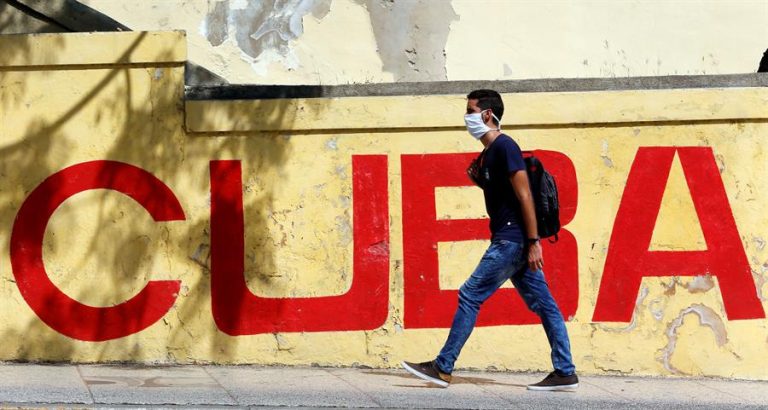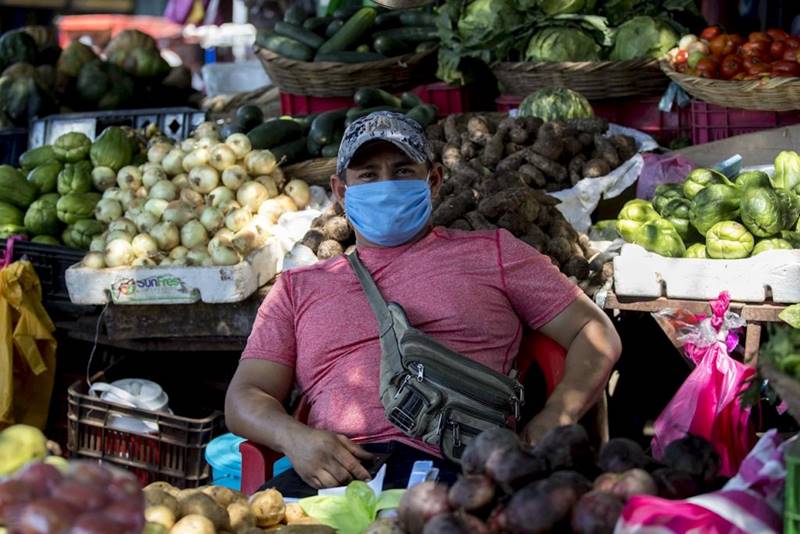10 de abril 2020

Children of Exile: The Births “Sowing Hope” in the Camp of Nicaraguan Farmers

PUBLICIDAD 1M
PUBLICIDAD 4D
PUBLICIDAD 5D
Government denies existence of community transmission in Nicaragua and insists that there are only 6 cases of the virus in Nicaragua, all “imported”

In the past 15 days, the Public Health Ministry in Cuba has confirmed Covid-19 contagion in three citizens who presented symptoms after returning from Nicaragua. This could reveal an “epidemiological blindness” on the part of the Nicaraguan Health Ministry, since up until now, the State hasn’t recognized the existence of these cases, nor announced any investigation of them.
“One case, you could dispute; two cases maybe, but now three cases, and in a sister nation, doesn’t leave you any room for doubt. Cuba is a political, military and strategic ally of the government,” stated epidemiologist Alvaro Ramirez.
The first case of contagion in someone who arrived in Cuba from Nicaragua was confirmed on March 27. The traveler was a 54-year-old woman who arrived on the island March 16, and 10 days later presented symptoms. With respect to this case, Martha Reyes, the recently named health minister in Nicaragua stated that it must represent a confusion.
“I imagine that they’re reviewing this, because the information was that she left on the 16th of March, and the first case we reported in Nicaragua wasn’t until March 18,” Reyes stated during an interview on the Nicaraguan television channel 10.
The next case was registered on April 3rd. It involved a 38-year-old woman who returned to Cuba on March 23 and began to have symptoms on the 31st of that month. The last case was identified on April 7th, but it isn’t known which day the traveler returned to Havana.
According to epidemiologist Leonel Arguello, each one of these cases should be analyzed to confirm that they really were infected in Nicaragua, since the virus already existed in both countries when the infections were documented. “So, you’d have to find out if these Cubans were put in quarantine when they arrived on the island, since otherwise, there’s a possibility that they were infected there,” the specialist added.
“If you have the case of a person who’s been in both places, it’s easier for you to accept that it originated with community transmission and begin to take measures. A well-prepared hospital can diminish the mortality rate. A well-prepared population can diminish the number of infections. The preventive measures should be taken without cases, during the existence of cases and after the cases disappear. There’s no scientific argument that keeps you from initiating a very strong information campaign,” insisted the expert.

Of all the countries in Central America, Nicaragua is the one that has officially reported the fewest cases of Covid-19. Photo: EFE
“The rhythm of infections with the new coronavirus has three stages: First, there are the “imported cases”; that is, when the person was infected in another country where the virus was already present. The second is when there are “non-imported cases”, where the infected person themself didn’t travel, but did have direct contact with an imported case.
The last stage is “community transmission”, or free circulation of the virus. At this point, the virus is already found in some parts of the population and it’s being transmitted from person to person in public spaces. In Nicaragua, according to the government, no cases of community origin have been reported. However, it’s not known what data they base this affirmation on.
“In epidemiology you can only say that there’s no community transmission when tests have been done and there’s sufficient evidence that there’s no virus on the streets. Otherwise, it’s all a fantasy,” explained Dr. Ramirez.
These tests should be performed on a sample of the population in different sectors of the country, and if the tests are negative, it could then be affirmed with certainty that there are no community cases. To date, the tests that the state have done are only in people suspected of having Covid-19.
“All of the countries of the region have shown a progressive growth of cases and they’re now beginning to have exponential growth of the infections. In the case of Nicaragua, not investigating is epidemiological blindness. Not looking so that you don’t find. And until they show the quantified evidence, the numbers of tests that have been done, how they’ve been done, what type of tests are being utilized, it can’t be affirmed that there’s no community transmission,” added the epidemiologist.
This Monday, April 6, the regime received a shipment of 26.000 rapid-result tests for detecting Covid-19. The tests were a donation from the Central American Bank for Economic Integration financed with funds from the Regional Contingency Plan, agreed upon by the presidents and heads of state of the Central American Integration System. However, it remains to be seen when and how they’ll be administered, as well as the data on how many tests have been done in the country to rule out cases of the Coronavirus.
Epidemiologist Leonel Arguello noted that the important thing is to begin a strong prevention campaign to combat this pandemic. “In reality, it’s of minimal importance to be talking about whether a case was imported or community based, because the strong preventive measures should be taken right now. It’s not necessary for you to have community cases to begin a strong preventive campaign,” he concluded.
PUBLICIDAD 3M
Confidencial es un diario digital nicaragüense, de formato multimedia, fundado por Carlos F. Chamorro en junio de 1996.
PUBLICIDAD 3D